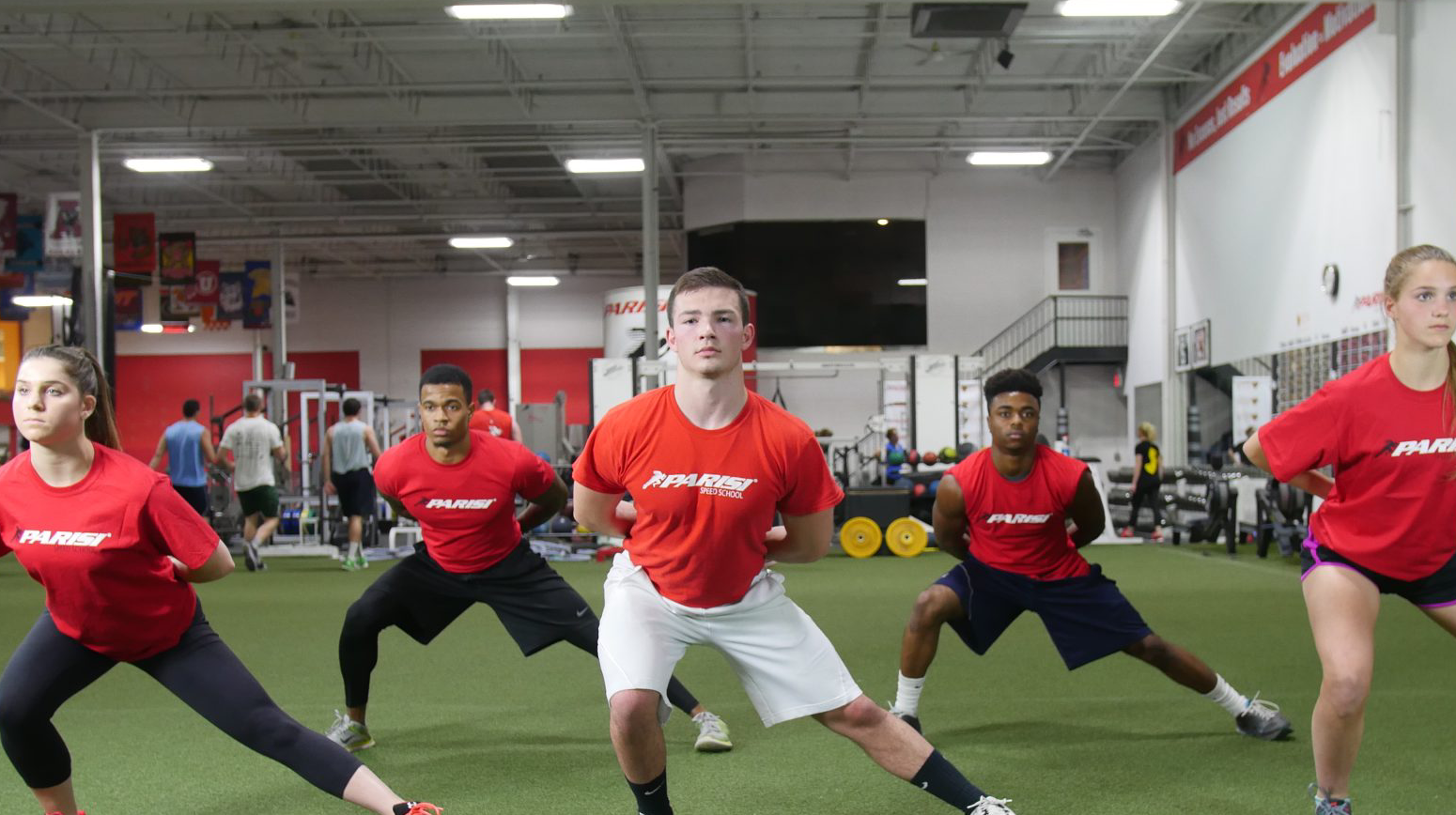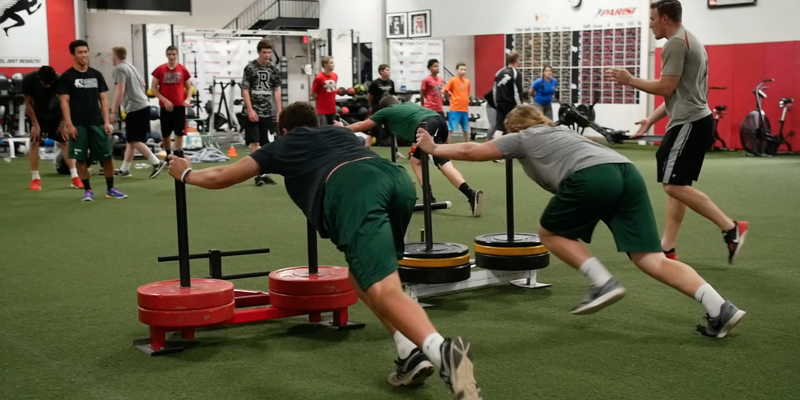By Bill Parisi, Founder Parisi Speed School
It has been said that the mental side of sports contributes to well over 50 percent of your chances for success on the field. Preparing athletes physically is important and can lead to enhanced play on the field. However, not preparing your athletes mentally, could eventually lead to a feeling discouragement and low confidence.
Sports can be a great metaphor for learning life lessons. The friendships kids develop through sports can last a lifetime. On the other hand, the challenges sports can bring into one’s life can either be great learning experiences or the worst of nightmares.
Seventy percent of all kids in American under the age of 14 play at least one organized sport. That equates to over 30 million children. One would believe that sports are doing such great things for our children with such a high participation rate. The tragedy is of that 30 million, over 70 percent of these kids drop out of sports by the age of 14. Why do so many kids give up on sports at such a young age? The answer is simple; they do not feel good about themselves playing a sport any longer, they have less self confidence or do not have a feeling of acceptance from their teammates or coaches.
As a coach, you can make a difference in helping kids build their confidence and self-esteem. It starts with the right mental training and knowing how to instruct it. Every kid is not going to be the star every game, and neither should they be. As a coach, it is important that you assume the responsibility to help grow every athlete on your team physically, mentally and emotionally. It is important that you do not take this responsibility lightly. Below is a list of responsibilities every coach must be follow;
• Treat every athlete with respect and dignity
• Give every athlete a fair opportunity
• Never ridicule an athlete in any way, no matter the circumstances
• Teach your athletes to be a G.A.M.E.R. This is not a video gamer, but an Athlete Gamer. An athlete gamer is someone who is prepared physically and mentally to perform their best in practice and on Game Day.
Guts – Teach your athlete to have GUTS. Get them psyched up for each practice and game. Encourage them to believe in themselves and their ability. Every child has great ability already inside of them. It is up to you to help motivate your kids to bring it out through deliberate and focused practice. Practice is a time to get better and enjoy the time with their friends.
Attitude – Make sure you have a positive and uplifting attitude every time you coach your athletes in practice and during the game. Also, demand the same from your kids. A bad attitude is like a cold. If you hang around someone with it long enough, you can catch it. Leave your stresses and challenges from work, or other aspects of your life, in the car. Once you step out onto the field or court become totally engaged with the kids, have fun and enjoy the experience. Remember, you are a role model to these kids. Youth sports are a great metaphor for life, so take it seriously.
It is important that you understand the difference between a “Fixed Mindset Attitude,” and a “Growth Mindset Attitude.” In her book “Mindset,” Dr. Carol Dweck, a PhD and professor at Stanford University describes a fixed mindset as “Someone who believes that talent is a gift, and you are born with it. It doesn’t matter how hard you work, you either have talent or not.”
Kids with this mindset tend to not give their best effort when the going gets tough and are afraid of making mistakes. Even if a child feels they have talent, when a situation occurs having them compete against others kids that seem more talented, the child will shut down and not give it their best because they do not want to embarrass themselves. These kids will typically only give a great effort when they feel they have more talent than their opponents.
On the other hand, Dweck describes someone with a growth mindset as “Someone who believes talent is developed through hard work and deliberate and focused practice utilizing the right strategies.”
With a growth mindset, the athlete is not afraid to make mistakes and they understand mistakes are ways to learn and grow. These athletes learn to move on from mistakes quickly and learn from them. Some athletes have a mistake ritual in which they “Flush” their mistake, by acting as if they are flushing the mistake down the toilet.
Mastery – Teach your athletes to have a “Growth Mindset.” Success is about the learning process of “Mastery,” or constant improvement. You or your athletes cannot completely control the score or outcome of the game. That has to do with timing and other factors such as referee calls, weather and luck. But you can control how your athletes practices and influence their desire to improve. The most important aspect of success is the desire to get better and to develop a “Growth Mindset,” to strive for constant improvement in all aspects of life.
Effort – To be a true Athlete Gamer you have to get your kids to develop the habit of giving an all out effort in practice and the game. The most important attribute you can coach in an athlete is their effort. Be sure to constantly reinforce the importance of your athletes’ effort. Phrases like “nice job,” or “way to work,” will help your kids become and stay motivated throughout your practice and games. Effort is the one thing in sports you can completely control 100 percent all the time. One of the most important life lessons we want to teach our kids is that talent is developed through deliberate practice, utilizing the right strategies and by giving a 100 percent all out effort on every drill and play.
Result – One thing is for sure… if you teach your athletes to have Guts, the right Attitude, and focus on Mastery, with 100 percent Effort in practice and games, you will get a Result that you can learn from and be proud of. The process of being an “Athlete G.A.M.E.R.” is a cycle that is the foundation for success not only in sports, but in life.
References; Mindset, 2006; Carol Dweck, Ph.D.,
G.A.M.E.R. is a Trademark of Parisi Franchise Systems, Inc.


 Spotlight: Gold Medal Fitness
Spotlight: Gold Medal Fitness
Excellent post! You have given really great tips for future athletes.
Excellent, what a blog it is! This website presents helpful data to
us, keep it up.
Love the Blog! Appreciate your efforts to writing this article, Thanks for sharing such informative post and useful tips. Keep the good work.
Excellent work! Thanks Alot.
Thanks Alot. Great Work.
Amazing Work Done by author.
helpful data
Great Work.
Thank you admin! Your hard work is clearly shown in this article.
Amazing Work Done by author.
helpful data. Mental Games are good for Mental Health.
Thanks for the sharing